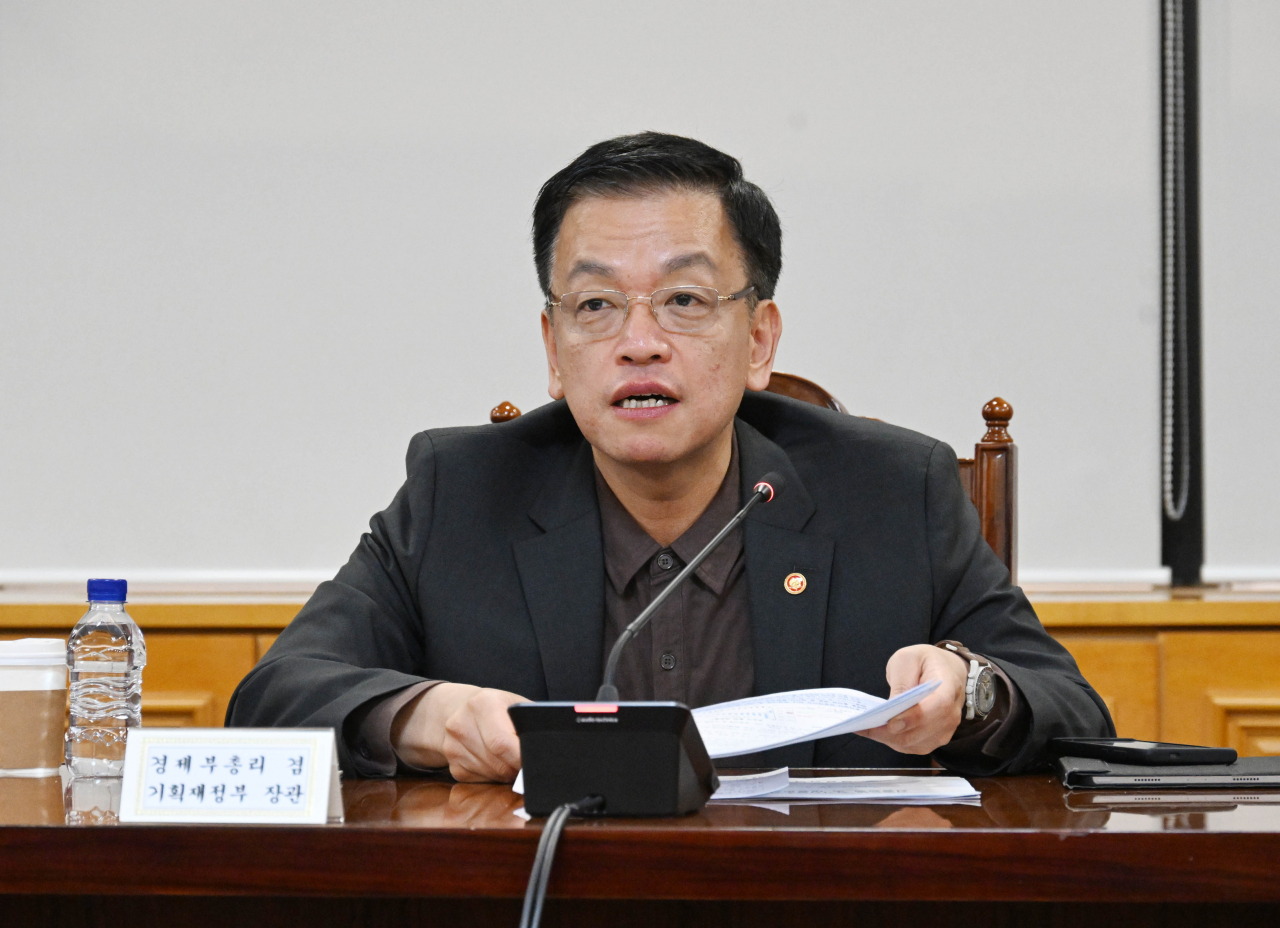
South Korea's finance minister has sought to reassure foreign investors and global financial institutions through emergency letters and meetings, as political tensions intensify following President Yoon Suk Yeol's martial law declaration.
An official from the Ministry of Economy and Finance confirmed that the ministry is continuing to send out emergency letters to major economies, financial regulators, and investors to assure them that "the nation’s political, economic and national systems remain intact despite the recent political developments."
Finance Minister Choi Sang-mok, who also serves as deputy prime minister, sent the first letter on Wednesday, outlining that the martial law and associated measures had been lifted following the National Assembly’s demand and Cabinet deliberations, in accordance with the Constitution and relevant laws.
"South Korea’s resilient economic system is effectively containing the turmoil stemming from non-economic factors, and the rapid stabilization of financial markets indicates the disruption will be short-lived," Choi emphasized, vowing to maintain transparent communication about ongoing developments.
As of Friday, the ministry continued to send emergency letters to working-level officials at financial regulators and major institutions, with tens of letters sent so far.
An emergency letter differs from the usual correspondence sent by the finance minister during normal operations. According to the official, the ministry issues emergency letters during significant events or risks.
This marks the first use of emergency letters since 2017 when former President Park Geun-hye was impeached. Similar letters were sent in March 2004 when late President Roh Moo-hyun faced impeachment, and in December 2016 when Park's impeachment process began.
On Friday, Choi, along with the industry minister, held a meeting with foreign investors and chamber of commerce representatives to address their concerns. The attendees, representing six foreign chambers of commerce in Korea, requested swift action from the government to resolve the uncertainty and ensure normal business operations.
In response, Choi and Industry Minister An Duk-geun reassured the group, stating that "The government will continue a consistent and systematic policy response to ensure the stability of foreign investment and economic activities in South Korea."
Meanwhile, political unrest is beginning to weigh on the market, as impeachment talks escalate.
The Kospi closed down 0.56 percent at 2,428.16 ($1.71) on Friday, marking a 2.88 percent drop from Tuesday, before the martial law announcement. The market showed volatility during the session, briefly falling to an intraday low of 2,397.73.
Retail investors, who had continued buying even after the political turmoil began, sold off a total of 577 billion won, while foreign investors dumped 309 billion won, adding to the 700 billion won they had sold in the previous two days.
The Korean won continued its weakening trend on Friday, rising to 1,429 won per US dollar, before closing at 1,419.2 won.
한국의 재정부 장관이 윤석열 대통령의 계엄 선언 이후 정치적 긴장이 고조됨에 따라 외국 투자자와 글로벌 금융 기관들을 안심시키기 위해 긴급 서한과 회의를 통해 노력을 기울이고 있다.
경제재정부의 한 관계자는 최근 정치적 발전에도 불구하고 "국가의 정치, 경제 및 국가 시스템이 intact하다는 것을 보장하기 위해 주요 경제국, 금융 규제 기관 및 투자자에게 긴급 서한을 지속적으로 발송하고 있다"고 확인했다.
최상목 재정부 장관(부총리 겸직)은 수요일 첫 번째 서한을 발송하며 계엄령과 관련된 조치가 국회의 요구 및 내각의 심의에 따라 헌법 및 관련 법령에 따라 해제되었다고 설명했다.
최 장관은 "한국의 회복력 있는 경제 시스템이 비경제적 요인으로 인한 혼란을 효과적으로 억제하고 있으며, 금융 시장의 빠른 안정화는 혼란이 짧을 것임을 나타낸다"고 강조하며 지속적인 발전에 대한 투명한 소통을 유지할 것이라고 다짐했다.
금요일 현재, 재정부는 금융 규제 기관과 주요 기관의 실무자들에게 긴급 서한을 계속 발송하며, 지금까지 수십 통의 서한이 발송되었다.
긴급 서한은 평상시 재정부 장관이 발송하는 일반 서신과 다르다. 해당 관계자에 따르면, 재정부는 중요한 사건이나 위험 발생 시 긴급 서한을 발송한다.
이번 긴급 서한 발송은 2017년 박근혜 전 대통령의 탄핵 이후 처음으로 이루어지며, 2004년 노무현 전 대통령이 탄핵 위기에 놓였을 때와 2016년 박근혜 전 대통령의 탄핵 절차가 시작된 12월에도 유사한 서한이 발송된 바 있다.
금요일, 최 장관과 산업부 장관은 외국 투자자 및 상공회의소 대표들과 회의를 개최하여 그들의 우려를 해소하는 자리를 가졌다. 참석자들은 정부에 빠른 조치를 요청하며 불확실성을 해소하고 정상적인 사업 운영을 보장해 줄 것을 당부했다.
이에 최 장관과 산업부 장관 안덕곤은 "정부는 외국 투자와 한국 내 경제 활동의 안정성을 보장하기 위해 일관되고 체계적인 정책 대응을 지속할 것"이라고 안심시켰다.
한편, 정치적 불안이 시장에 미치는 영향이 나타나고 있으며, 탄핵 논의가 격화되고 있다.
금요일 코스피 지수는 0.56% 하락한 2,428.16으로 마감했으며, 이는 계엄령 발표 이전인 화요일 대비 2.88% 하락한 수치이다. 거래 중 코스피는 잠시 2,397.73으로 intraday 최저치를 기록하기도 했다.
정치적 혼란이 시작된 이후에도 계속해서 매수에 나선 개인 투자자들은 총 5,770억 원어치를 매도했으며, 외국인 투자자들도 3,090억 원을 매도하며 이틀 동안 7,000억 원을 팔아치운 바 있다.
한국 원화는 금요일에도 약세를 이어가며 미 달러당 1,429원에 이른 후 1,419.2원에 거래를 마쳤다.
